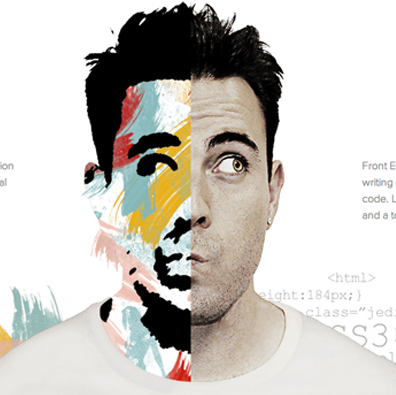Learn the basics
LTFB – Learn the f* basics. Any further tip is useless if you do not know the basics of web development. If you find yourself struggling with programming and design, I’ve got some nice getting started guides for you on this blog. Try to pick a few topics and make yourself comfortable with basic requirements in web development.
Learn how to code in HTML, CSS & JavaScript
To learn the basics of programming, I’d recommend taking an online course. There are tons of great programs to choose from out there: Hop over to treehouse or code academy and check out their classes.
There are different classes available on how to get started with HTML and CSS, JavaScript, jQuery, and many other programming languages. Start with classes in HTML, CSS, and JavaScript and start exploring and building your own websites by creating a few static web pages.
After making yourself comfortable with HTML, CSS, and JavaScript, you could move on to learning about Ajax and jQuery, for example.
Learn how to design
Getting started in web development also requires some basic understanding of good design. Besides making yourself familiar with some design tools, I’d recommend learning the basic concepts of design. Learn how to think like a designer.
Teamtreehouse, for example, offers some great classes and materials on design. Lynda.com is another great resource.
Further educational resources
Learn a new programming language within 1 month
Great tutorials on design & web development at lynda.com
Learn how to code with Code School
